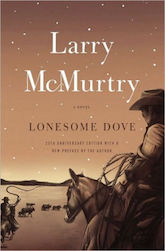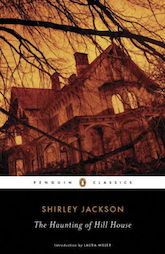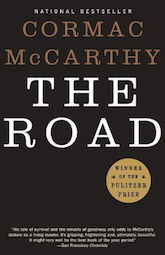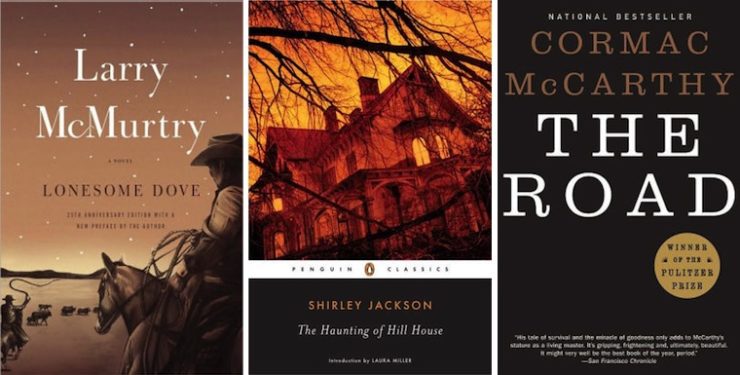Confession time: I don’t read much.
Some of the reasons I don’t read much will be familiar. For example: I don’t have time. I find the only real time I have to get reading done is the 30-40 minute subway ride from Brooklyn to One Police Plaza and back each day. When you factor in interruptions for spontaneous breakdance shows, or subway-car religious preaching that rips you out of your reverie, it’s even less time than you think.
Some of the reasons will be less familiar, unless you write for a living. My reading time is now a commodity, as publishers and fellow authors want me to look at manuscripts, either with an eye toward giving a jacket quote, or to give needed feedback. This takes some of the fun out of reading, but even more joy-leeching is the need to improve my craft. This has me reading in the same way a boxer might watch a fight video of a future opponent. You’re not getting transported by the art, because you’re too busy picking it apart and trying to figure out how and why it works. One the earliest and most keenly-felt casualties of becoming a professional writer was a spike through the heart of the sheer-joy-of-reading.
It’s a good thing I hate fun.
I usually pass on the classics, without regret. But once in a blue moon, I am forced to engage, and wind up kicking myself for having waited so long.
Lonesome Dove by Larry McMurtry
 Certainly the best Western, and easily a candidate for the best novel, I have ever read. It justifiably won the 1985 Pulitzer Prize for Fiction, and I had heard of it buzzing in the background as one of the classics I needed to get to ever since I was a kid. I finally picked it up, because Joe Abercrombie, one of the writers I most admire, had said that Westerns were a major influence in his writing, and I was trying to puzzle out what made his latest book, Red Country, so damn good. Well, I can’t swear it was Lonesome Dove that put Joe over the top with his novel, but it sure as heck had an impact on me.
Certainly the best Western, and easily a candidate for the best novel, I have ever read. It justifiably won the 1985 Pulitzer Prize for Fiction, and I had heard of it buzzing in the background as one of the classics I needed to get to ever since I was a kid. I finally picked it up, because Joe Abercrombie, one of the writers I most admire, had said that Westerns were a major influence in his writing, and I was trying to puzzle out what made his latest book, Red Country, so damn good. Well, I can’t swear it was Lonesome Dove that put Joe over the top with his novel, but it sure as heck had an impact on me.
McMurtry uses the broad, empty expanse of the old Texas-to-Montana cattle trail as a palette to paint a picture of love and loss that is more moving than any I’ve ever encountered. His cast of grizzled cowboys, tough-eyed frontier women and stoic Native Americans are evoked with such an intense empathy that they felt like real people to me. The book follows a cattle-drive and unwinds the longing for love and acceptance of each of the characters, made hard by the demands of the rough country, and therefore limited in their ability to reach out and claim what they need the most. The book is funny, exciting, and masterfully executed. But most of all it is deeply, deeply sad, full of the kind of “painful joy” that Yehuda HaLevi evokes in his famous poem. Love is devastating, McMurtry tells us in his masterwork, and it is also well worth it.
The Haunting of Hill House by Shirley Jackson
 Pretty much every kid is forced to read Jackson’s famous short story “The Lottery” in high school English. But I’d wager a much smaller proportion of us go on to read her many other works. I counted myself among them, mostly for the reasons I listed above, but I was lucky enough to date someone who kept on me about broadening my reading horizons, and she hammered me on Jackson especially.
Pretty much every kid is forced to read Jackson’s famous short story “The Lottery” in high school English. But I’d wager a much smaller proportion of us go on to read her many other works. I counted myself among them, mostly for the reasons I listed above, but I was lucky enough to date someone who kept on me about broadening my reading horizons, and she hammered me on Jackson especially.
I’m lucky I listened. The Haunting of Hill House easily strips The Turn of the Screw of its top spot as best horror-tale carried by an unreliable narrator. The antiquated prose-style serves only to deepen the feeling of the setting, to create a sense of deep and profound alienation. The reader, like the guests at Hill House, is an unwelcome visitor in a space colonized by a hostile, otherworldly force that means them harm. From the moment you start reading, the book makes you intensely uneasy in the best way possible.
But the real strength of The Haunting of Hill House is what comes after you finish it. The endless questioning of your assumptions. Was this really a paranormal occurrence? Or was it simply the product of the narrator’s fevered imagination? Did the hauntings actually occur? Was it a conspiracy? Insanity? Something else? Narratives like these are fantastic because they linger for so long, prompting the kind of late night, whiskey-fueled intellectual debates that literature fans live for. Jackson is the absolute master of cover/uncover style fiction, giving the reader just enough breadcrumbs to keep them interested, but otherwise keeping them in the dark for the deliberate end of ensuring that the feeling of profound unease is never completely dispelled.
The Road by Cormac McCarthy
 I didn’t even know that The Road was a science fiction novel until recommendations and the 2009 movie deal forced me to tackle it. At the time I was grappling with my love of the so-called “grimdark” subgenre, and was trying to see what made it so compelling. My friend Marc Aplin, who founded the influential Fantasy Faction fandom website, told me I had to read it, and I trust Marc’s taste implicitly.
I didn’t even know that The Road was a science fiction novel until recommendations and the 2009 movie deal forced me to tackle it. At the time I was grappling with my love of the so-called “grimdark” subgenre, and was trying to see what made it so compelling. My friend Marc Aplin, who founded the influential Fantasy Faction fandom website, told me I had to read it, and I trust Marc’s taste implicitly.
He didn’t steer me wrong.
McCarthy sets up a landscape of impossibility, a post-apocalyptic world where nothing can grow, and where the food chain is irrevocably interrupted. Human life is in an irrecoverable death spiral, and that hopelessness permeates the text. The questions McCarthy raises write themselves. How can we find meaning in a world that is ending? Is it still worth it to love and care for one another? What does it mean to be good? McCarthy answers these questions with a bone-shaking resonance. Reading The Road made me feel like a human tuning fork. I was literally vibrating with the power of the narrative by the end.
And, like the zombies in The Walking Dead, the wasteland is merely the device, the crucible into which McCarthy thrusts his characters to we can have the pleasure of watching them dance under pressure. And their dance is so haunting familiar, so heart-stoppingly human, so full of love and loss and the promise of redemption. The Road has that greatest of story arcs, the gut-wrenching plummet into the abyss that somehow manages a slight upturn before everything goes black. It is a work that promises, in the midst of an immutable doom, an incredible, powerful glimmer of hope.
This is just a tiny sliver of the classics I’ve been fortunate enough to read that left me profoundly changed. And my tiny sliver is just a tiny sliver of what’s out there. If you’re a busy person, maybe make the time and put in the compute cycles to read some of these. I know I’m a better writer, and probably a better person, for it.
 Myke Cole is a devoted comic fan and voracious fantasy reader who never misses his weekly game night. His fandoms range from Star Wars to military history. He’s a former kendo champion and heavy weapons fighter in the Society for Creative Anachronism. At the D&D table, he always plays paladins. After a career hunting people in the military, police, and intelligence services, Cole put these skills to good use on CBS’s hit show Hunted. Author of the Shadow Ops series and the Sacred Throne Trilogy, which begins with The Armored Saint, Cole lives in Brooklyn, New York.
Myke Cole is a devoted comic fan and voracious fantasy reader who never misses his weekly game night. His fandoms range from Star Wars to military history. He’s a former kendo champion and heavy weapons fighter in the Society for Creative Anachronism. At the D&D table, he always plays paladins. After a career hunting people in the military, police, and intelligence services, Cole put these skills to good use on CBS’s hit show Hunted. Author of the Shadow Ops series and the Sacred Throne Trilogy, which begins with The Armored Saint, Cole lives in Brooklyn, New York.











Lonesome Dove: I should read this: I own it, I have started it and I have read other McMurtry. Unfortunately, I have a mmpb edition with a font size which causes my eyes severe strain after ~30 pages so I will eventually have to give in and replace it with a larger edition.
The Haunting of Hill House: Yes, you can believe the hype on this one. I think We Have Always Lived in the Castle slightly edges it for me.
The Road: And again, I have read Blood Meridian but not this one. It’s on the list for when the time is right.
My latest example: After years of vacillating I am getting into Elmore Leonard.
I’m going to have to read Lonesome Dove just tobfind out if there actually was a Texas to Montana cattle trail. I know there was a Texas to Kansas trail, which allowed transport to the population centers of the east via rail. I can’t think of why you’d take Texas cattle to Montana.
The Road is special. I saw the movie first. Both were spectacularly moving.
@1
Read all the Elmore Leonard you can get. He wrote westerns before the stuff he’s famous for now. I also highly recommend a binge watch of Justified if you can stream it on Amazon.
@1: Doing so. The Law at Randado is next for me: I will file away Justified until I have got to the Raylan books.
In recent years I’ve had a couple of “why did it take me so long to read this” books of my own — after owning both of them for 20+ years I finally got around to reading The Face in the Frost and The Last Unicorn and in both cases my only regret was that it had taken me so long to finally get them off the shelf.
I must confess that I only read The Handmaid’s Tale for the first time last year, before watching the (excellent) Hulu TV series. I’ve re-read it since then, and have Oryx & Crake lined up for my next read.
@2 – they want to start the first cattle ranch in Montana, it’s not an official trail.
I may never have read any Larry McMurtry, but I’ve listened to a lot of his son’s music.
I’ve read a fair amount of Cormac McCarthy–Orchard Keeper, the Border trilogy, Blood Meridian, No Country for Old Men–but The Road has been sitting on my shelf unread for years.
@@.-@. hoopmanjh. I’m so glad you finally read The Face in the Frost. It’s one of my favorite books, something I reread when I’m too tired or lazy to start a new book.
And Larry McMurtry is just a really good writer. Read Lonesome Dove years ago because I was at a friend’s house and needed a book. That led me to find everything he wrote. And if you liked Lonesome Dove, he wrote three more books with those characters. He wrote Terms of Endearment and The Last Picture Show, and 3-4 more books for each of them. Plus a lot more, like I said, a very good author
Stephen King did a great analysis of The Haunting of Hill House in Nightmares and Dreamscapes (you could tell he must’ve been a well-liked teacher back in the day.)
#2,
Try Andy Adams’ The Log of a Cowboy for a reasonably true, and very entertaining story of driving cattle from Texas to Montana.
Mr Cole,
They’re classics because people have thought these books were worth reading for decades after the author’s death. That said, you’d need firearms to get me to read Hemingway again.
A mere 10 months after this article was posted, I have finally got round to finishing Lonesome Dove. I think reading long sections with few distractions helped me to get into the rhythm of this American epic, which satirises and celebrates the mythologised West: Call and Gus are perfectly paired protagonists. I would be interested to hear from readers of the other three books in the series how they compare and relate to the original.
@12, Amen! And I might prefer to be shot at that!